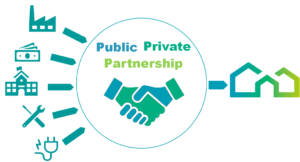This Report was written by Advancement Through Research and Knowledge (ARK) Foundation in Bangladesh. The researchers estimate that the total price elasticity of demand for cigarettes is -0.71. A 10% increase in the price of cigarettes would reduce smoking by 7.1 percent, meaning that cigarette demand is inelastic. PDF Version | HTML Version
No Comments
This policy brief is based on a research study titled “Estimating Price Elasticity of Cigarette Demand in Bangladesh Using GATS Data” conducted by Advancement Through Research and Knowledge (ARK) Foundation, Bangladesh. PDF Version
- Published in Policy Brief, Resources
Mass media were the major source of information about COVID-19. Finances, employment, and physical health were the most frequently mentioned concerns. Overall, participants reported good knowledge and following advice. In Bangladesh, being female and higher levels of health-related quality of life (HRQoL) predicted poor and better knowledge, respectively, while in Pakistan being female predicted better
- Published in Journal Article, Resources
This report presents an overview of the COVID-19 response in the country from February to the End of August 2020. It focuses on the response related to urban health in the country and tries to portray the interaction of different stakeholders and the deciding authorities in Covid-19 management in urban areas. PDF Version | HTML Version
Improved quality and access to healthcare services are essential for a country’s development. Private sectors like NGOs, for-profit and non-profit organizations have significantly contributed to health by financing and managing healthcare services in different ways. In developing countries, the private sector becomes more critical because, with limited resources, such countries struggle to ensure proper health
Bangladesh has 67% of estimated deaths caused by non-communicable diseases (NCDs). The country aimed to reduce NCD-related premature deaths by one-third by 2030. This study aimed to explore the overall implementation status of the NCD control program at the primary health care (PHC) level in Bangladesh, explore the challenges, and identify the way forward for
- Published in Journal Article, Resources
As societies urbanize, their populations have become increasingly dependent on the private sector for essential services. The way the private sector responds to health emergencies such as the COVID-19 pandemic can determine the health and economic wellbeing of urban populations, an effect amplified for poorer communities. PDF Version | HTML Version
- Published in Journal Article, Resources
Effectiveness of interventions to address obesity and health risk behaviours among people with severe mental illness in low- and middle-income countries (LMICs): a systematic review and meta analysis PDF Version | HTML Version
- Published in Journal Article, Resources
In 2020, due to the impact of COVID-19 pandemic, the number of newly diagnosed tuberculosis (TB) case notifications saw a big drop from 2019 while the number of people who died from TB increased due to reduced access to services at global, regional and country levels.1 Bangladesh (218 per 100 000 population) and Pakistan (259
- Published in Journal Article, Resources
This policy brief is based on a study titled “Vegetables and fruits retailers in two urban areas of Bangladesh: Disruption due to COVID-19 and implications for NCDs” conducted by ARK Foundation, Bangladesh funded by the International Development Research Centre (IDRC), Canada. PDF Version
- Published in Policy Brief, Resources


